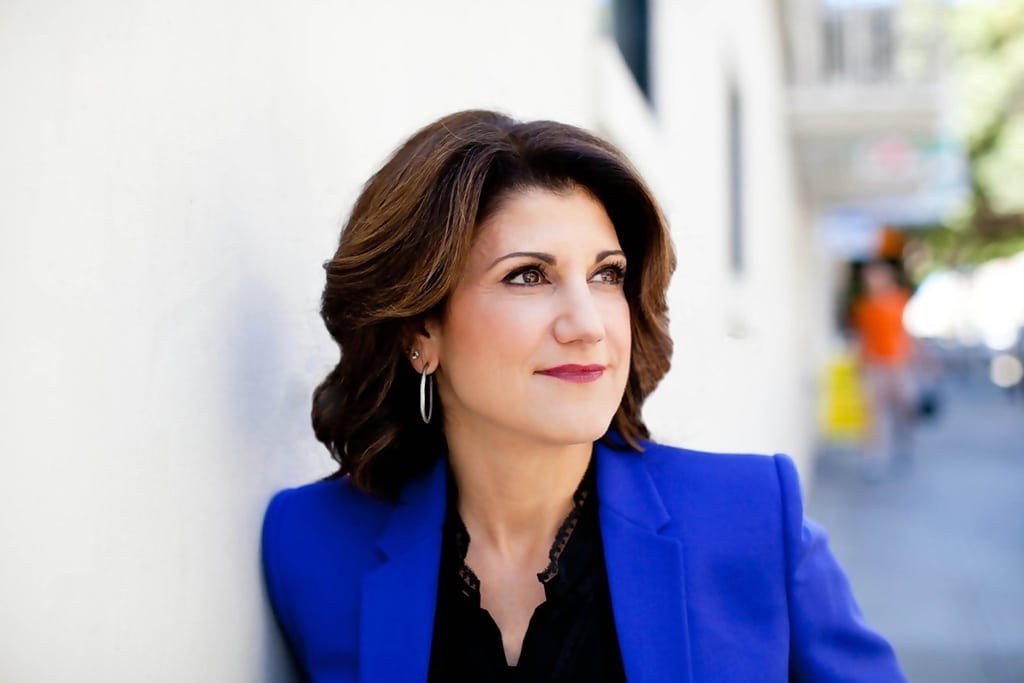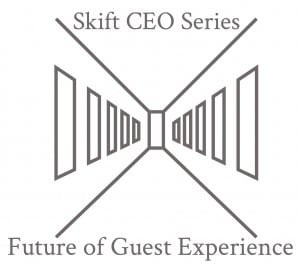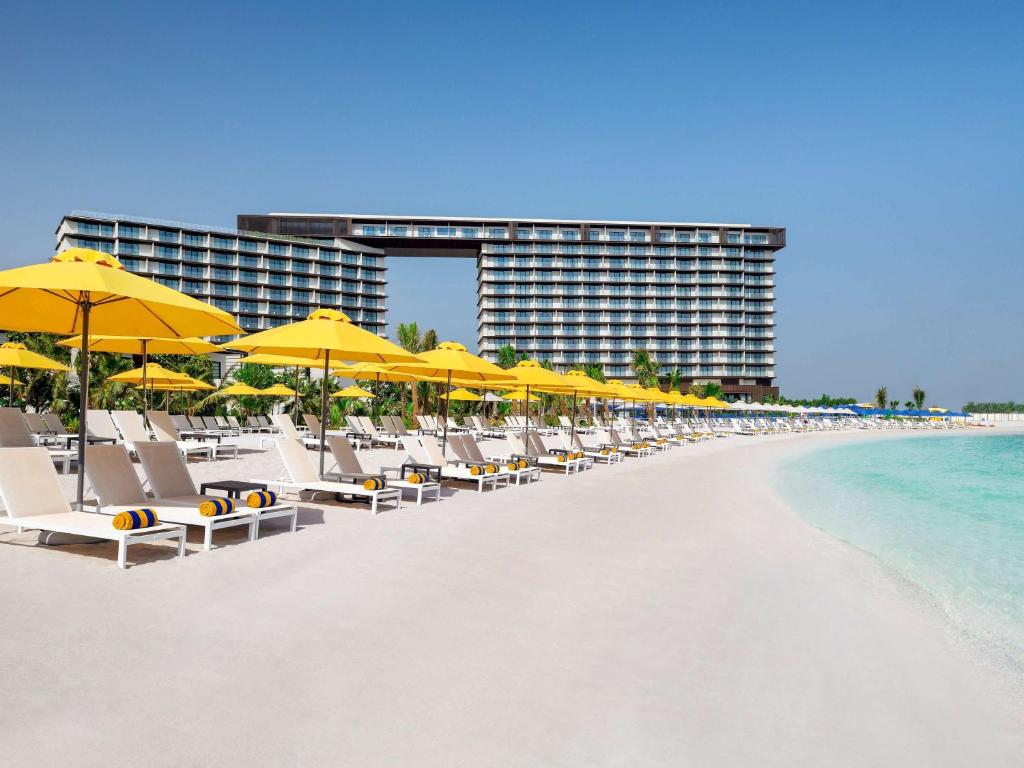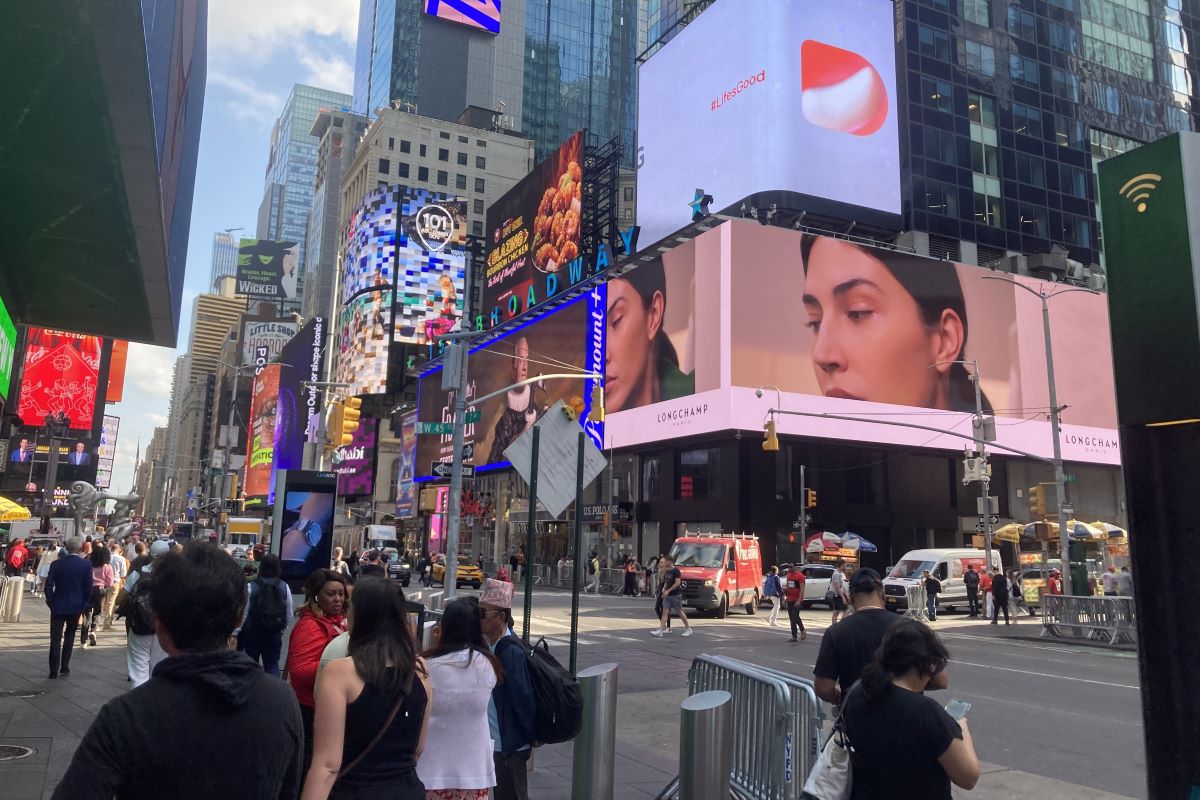Interview: Commune CEO on How Lifestyle Hotels Adapt to Guest Desires

Skift Take
Editor’s Note: This interview is part of Skift's CEO interview series. This series is with hospitality CEOs talking about the Future of the Guest Experience and the evolving expectations and demands of hotel guests. Check out all the interviews as they come out here. Also, enjoy the previous series on the Future of Travel Booking, with online travel CEOs.
Commune Hotels and Resorts is a relatively new hotel company, which formed in 2011 when boutique hotel brand Joie de Vivre merged with luxury lifestyle brand Thompson Hotels. In addition to the two founding brands, Commune recently launched tommie, a value-oriented that combined the luxury and bespoke lifestyle elements of the former brands.
Niki Leondakis, the company's current CEO and one of very few women leading a hotel corporation, joined Commune in 2012 after serving as COO and president of Kimpton Hotels & Restuaurant. Her experience puts her in the center of the lifestyle hotel sector whose growth was evidenced by IHG's $430 million offer to acquire Kimpton last week.
Leondakis recent spoke to Skift about hiring for spirit, how diversity of staff impact guest experience, and the role of content in engaging new customers. An edited version of our interview can be found below.
Skift: What are the biggest challenges that you're facing today to improve the guest experience?
Niki Leondakis: The biggest challenge is understanding changing guest attitudes and travel habits. They've been changing at a rapid rate in the last few years for a variety of reasons. The challenge is interpreting how those changing attitudes and habits can best be incorporated into the way we program our hotels and engage our guests. Those changing attitudes and habits, combined with globalization, the breaking down of barriers, and cultural differences is redefining how we bring the hotel experience to the guest.
Skift: What are some of the major shifts that you're seeing in guest expectations or demands?
Leondakis: A lot of people focus on millennials and what that particular demographic wants from a hotel stay, how they make buying choices, and how they engage, but I think that the millennial attitude is more of a prevailing attitude that crosses generations. It's a cultural shift and millennials are the catalyst. People today want a more familiar level of engagement with hotels; they don't want the servitude of years past. Traditional notions of luxury are fading and being redefined by the contemporary lifestyle traveler.
Skift: What does luxury mean to today's travelers?
Leondakis: Travelers are looking for functionality over flash. It's not all about a high ratio of staff members to guests or 1,000-thread count sheets. It's more about streamlined amenities and getting what you want when you want it; convenience and efficiency over excess. Guests want to pay for the services and amenities that they specifically want, not pay for broad levels of service amenities that they're not necessarily going to use. Today’s traveler wants team members to have a more human level of engagement, to knowledgeable about the neighborhood and the community they're in.
Skift: What role does staff play in improving the guest experience?
Leondakis: We focus a lot on hiring, the recruitment selection, and hiring process. It's really around the kinds of people that we look for. Our belief is that our people define our brands. The traveler who is choosing to stay in a lifestyle hotel definitely has an attitude of wanting to fully immerse and engage. We interview for attitude, personality, and emotional and social intelligence. It’s really the spirit deep down within that human being that we're considering and whether they find happiness in helping make someone's day.
Skift: Have there been any changes to the hiring experience or process recently?
Leondakis: Yes, we've gotten much more specific about the kinds of people we're hiring. We have in-depth interviewing around interpersonal and social skills and we have peer interviews to ensure that new hires' colleagues will believe in them and understanding what their motivations are. Are they someone who enjoys giving it back to others? Are they someone who creates transformative experiences in their everyday life, not just because it’s a job but because they can?
We really look deep into the person's heart and soul to understand who they are and what motivates them. For most jobs, we can teach technical skills. We can't teach human spirit.
Skift: Is it difficult to interview someone for something like human spirit?
Leondakis: We teach behavioral interviewing, how to ask the types of questions that give us insight into what people are all about and what's beneath the surface. One of the things that I'm definitely clear on is that when we make a great hire, someone who's aligned completely within our cultural values and our higher purpose, that person attracts more like-spirited people. The more great people we hire, the more they attract people like that. It's less difficult than you think. When you have a great culture and live it and breath it every day then every person you're interviewing is really really looked at from an in-depth standpoint of whether they're a cultural fit and understand the importance of that in their day job.
It's showing up more and more when we open new hotels. We hired more than 400 team members at our most recent opening, the Thompson Miami Beach, and because the general manager embodies that spirit, he attracted team members that embody that spirit. It's incredible the heart and soul that that two-week-old hotel has amongst the team members. It's reflected in the feedback we're getting. Great people attract great people.
Skift: What role does technology play in improving the guest experience at your hotels?
Leondakis: It plays a major role and it definitely leads to greater engagement. It’s so prevailing in all service industries when used effectively to exceed guest expectations.
For example, when you go into a retail store to make a return without a receipt, the store has the technology to quickly look you up, find your account, confirm that you actually bought the item, and deliver store credit in a couple of minutes. It makes life easier. It takes all the friction out of a service experience. If we can harness the information that technology is able to provide us to deliver more personalized experiences then we can deepen engagement and cultivate loyalty. It should also lessen any pain points across the travel journey, beginning with the booking process. That said, I think that sometimes technology gets over emphasized. It really isn’t the point of the hotel. We're not trying to build tech hotels, we're just trying to use technology to provide guests with an experience that meets and exceeds their expectations and takes any of the friction out of their stay.
Skift: Interesting, what about back inverse facing technology, or customer facing technology? You mentioned both examples here, but are you more concerned with one or the other? Does one take up more of your time thinking about either the back end or the front end technology here?
Leondakis: I wouldn't say one is taking precedent over the other for us. We adopted a mobile first strategy in 2014 and pushed heavily to adopt leading SEO practices. It's in an effort to deliver consistent and quality experience to our guests across all devices. It's also designed to deliver enjoyment and better serve current and prospective guests by making it easier to explore the hotels and the neighborhoods.
We did this by providing richer storytelling, larger eye-catching photography, destination-inspired content curated by locals, and social integration. Our sites are now designed to load faster, direct customers in fewer clicks, and are optimized for all devices. There are single-page layouts, navigation that anchors on the page, all of which was done to make it easier for our guests to use our sites. After doing this, we saw a 7-percent lift in our conversion rates and more than 500-percent increase in our mobile traffic since it launched in September.
All of this is being done in an integrated way to enhance the guest experience. We are also heavily focused on quality and relevance in our social engagement with guests. We published more than 15,000 pieces of unique content, which is a lot for a relatively small portfolio, and pushed them across Facebook, Twitter, Instagram, Google+, and our brand sites.
Skift: What are you views on the increase in fees across the hospitality industry?
Leondakis: I'm not sure there's an increase in fees, although there might be more awareness and fees are shifting into different areas. In an ideal world, our guests would pay a daily rate that would cover all that the hotel has to offer other than minibars or food and beverage outlets. One size just doesn't fit all. I don't think you can really sum up what an urban boutique hotel should be doing versus a beach resort.
What's most important is that we don't nickel and dime our guests. If there are any fees for services or amenities that all guests aren't using then they should be communicated very clearly and upfront so there are no surprises.
Skift: Is there anything else about the guest experience that you spend a lot of time thinking about?
Leondakis: With the globalization of travelers coming to and from places that they've never traveled to before, I think it's really important that we ensure that the leadership in our hotels and in our businesses reflects the diversity of our travelers.
For me, a commitment to the diversity of our executive team and our hotel is very high. I think that's an opportunity for all of us to do a better job serving the individual needs of our guests so that we can really harness the diversity of thought that comes from a diverse leadership team. Use the diversity of thought to connect with a wider array of people from different backgrounds, lifestyles, and orientations.
Skift: You're one of only two hotel CEOs that we've found for this series. Why do you think there's still such a lack of diversity in this executive role within the hospitality industry?
Leondakis: I think honestly it's a matter of time. There are more and more women getting into the higher levels of leadership in executive ranks and CEO level positions in hotels. It's definitely taking longer than any of us would like. Part of the problem may be that a lot of women choose to take a step away from the career track in order to have families and part of it may be that our industry is still dominated by men on the boards of directors, the real decision-making roles. I think hospitality is close to the Fortune 500 statistics that show the percentage of board seats and CEO-level positions held by women is improving at a snail's pace.





